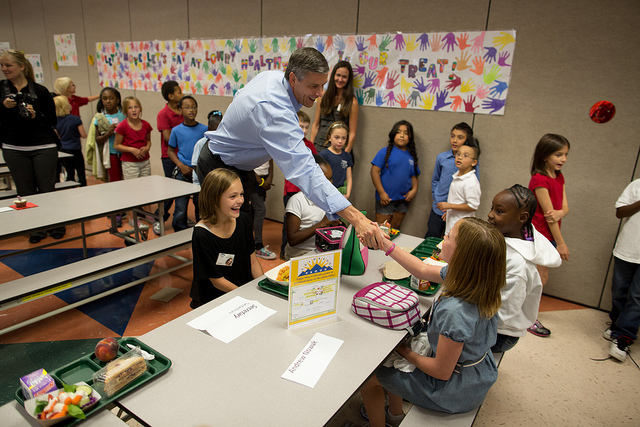States are in the process of submitting plans to carry out the Every Student Succeeds Act (ESSA), and they are using a new application that was recently released by President Trump’s Education Secretary Betsy DeVos. The new application is shorter and has fewer requirements than the application that was released by the Obama administration.
Education advocates have been worried that Secretary DeVos would be lax on accountability and in enforcing requirements for those accountability plans, and this is exactly what is happening. As you may recall, last month Congress scrapped the Obama administration’s rule for holding schools accountable for student performance under the ESSA.
Now the Trump administration’s application for states to submit their accountability plans for the ESSA do not require input from the education community. Education Week breaks down the differences in the Obama template and the Trump template for accountability plans:
“The Trump template appears to place fewer requirements around how a state explains its outreach to various groups in the state for their feedback and ideas. The Obama template says states must engage in timely and meaningful consultation with stakeholders in developing its consolidated state plan. And it added that these “stakeholders” must “reflect the geographic diversity of the state.” It included a long and fairly specific list of who should be consulted, including districts, civil rights groups, employers, and higher education institutions.
The Trump template, on the other hand, says merely that states can describe their outreach to these groups if they want to, but it’s not a must. Here’s the actual language: “In its consolidated state plan, each SEA may, but is not required to, include supplemental information such as its overall vision for improving outcomes for all students and its efforts to consult with and engage stakeholders when developing its consolidated state plan.”
To be sure, educators and advocates never had veto power over a state’s plan. Still, a state will no longer be required to involve their local community in crafting their plan.”
In addition, the Trump administration template is shorter and is not as specific in asking states to detail how they were distributing resources for school improvement. The Obama administration had accountability rules for the ESSA to make sure that the achievement levels of disadvantaged students could not be hidden. Those rules were put on hold when the Trump administration put a freeze on regulations and then when Congress overturned them last month.
The two top legislators, Senator Patty Murray (D-WA) and Representative Bobby Scott (D-VA) who helped craft ESSA issued a statement about the changes in the template for state plans.
“We are disappointed that Secretary DeVos is casting aside input from teachers, parents and stakeholders and is refusing to implement the Every Student Succeeds Act as Congress intended. Without the strong federal guardrails ESSA puts in place—including requirements for stakeholder consultation and a common state plan—decision making becomes less transparent and puts our most vulnerable children at risk of falling through the cracks.”
We don’t want to see fewer requirements for accountability, and we want meaningful stakeholder input in these state plans for the ESSA. We need to move forward in ensuring that the most vulnerable students do not fall through the cracks. Unfortunately, Secretary DeVos is making it easier for states and schools to go backward instead of forward.
We are all in this together with you. We want to be a resource for you and for all of the children you love. Whether you need some info or you have info to share, you know where to go…LA Comadre.
Latest posts by La Comadre (see all)
- Cómo está Regresando la Escuela de un Salón - July 28, 2022
- ¿Se Debe Exigir a los Estudiantes recitar el Juramento a la Bandera? - June 10, 2022
- 5 Aplicaciones de Salud Mental y Bienestar para descargar ahora Mismo - May 5, 2022
- How the One Room Schoolhouse Is Making a Comeback - May 5, 2022
- El Dinero Importa: Donación de $ 1 millón a Programas de Educación Financiera en LAUSD - April 25, 2022

